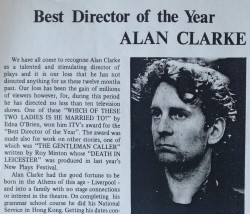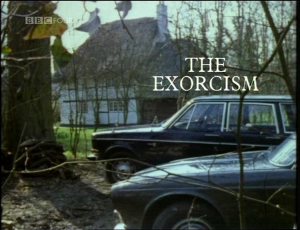by DAVID ROLINSON
Tony Parker’s (25 June 1923-3 October 1996) work for Play for Today fulfils two of its central aims: to reflect contemporary society (as its title implied) and to give a hearing to otherwise neglected voices. Working in a similar manner to Jeremy Sandford, but developing his techniques even further, Parker’s dramas employed journalistic research and meticulous observation to give a voice to society’s most marginalised figures. Although the writer of a handful of superb plays, Parker was primarily a hugely respected oral historian (his ears were once described as a ‘national treasure’). His published studies and television drama were underpinned by a selfless desire to act as a witness, and to resist imposing editorial devices or contrived narratives, as he sought to ‘record without comment or judgement’ the stories he was told1. Though his work was wide-ranging – he moved between unmarried mothers in No Man’s Land (1972) and lighthouse keepers in Lighthouse (1975) – he was most associated with studies of convicted criminals, both in and out of prison. Anthony Storr described him in 1970 as ‘Britain’s most expert interviewer, mouthpiece of the inarticulate and counsel for the defence of those whom society has shunned and abandoned’2.




